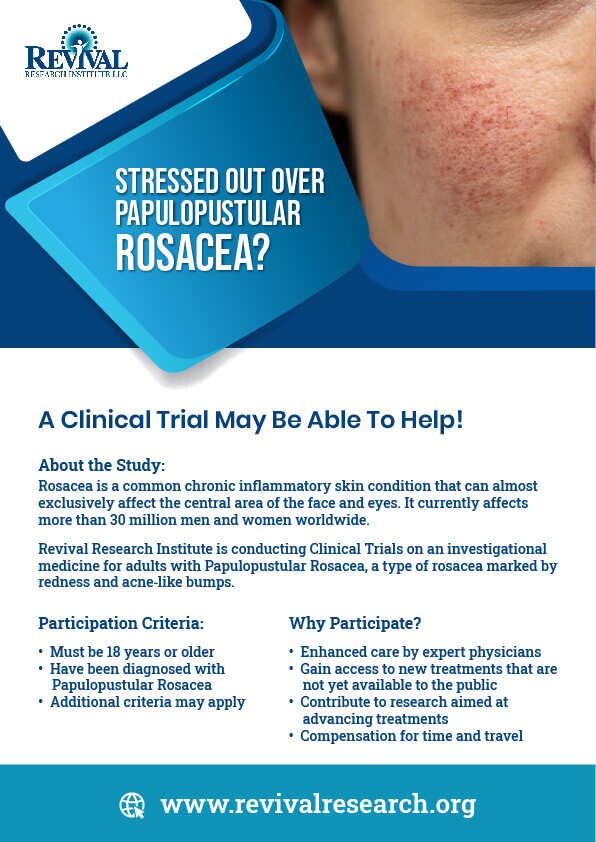A Clinical Trial May Be Able to provide you with Options!
Rosacea is a common chronic skin condition categorized by severe blushing and flushing of the central area of the face. Redness and small visible blood vessels, especially near the nose area and the cheeks are an identifying symptom. There may also be several tiny bumps that resemble acne, accompanied by discomfort and a burning sensation, and this is known as Papulopustular Rosacea. The discomfort caused by the persisting symptoms of the disease may worsen the quality of life.
Revival Research Institute is now enrolling for multiple studies that are exploring novel treatment options for this condition. Dermatology Clinical Trials are being carried out with the objective to determine better Rosacea therapies while evaluating their safety and efficacy.
You may be eligible for the Papulopustular Rosacea Study if you:
- Are 18 years or older
- Have been diagnosed with Papulopustular Rosacea
- Can comply with all the study-related procedures
*There is no cost for the Rosacea Clinical Trials and medical insurance is not required to enroll in the study. Money will be reimbursed for travel to the site and time spent at the site. If you qualify and decide to participate, you will receive free study-related care from specialist doctors and research staff.
*If you are willing to participate in the Rosacea Research Study or need more information, please fill out the form so we can evaluate your qualification for the clinical trial and we will get in touch with you at the earliest possible time. Please keep in mind that your participation is completely voluntary. You may, at any point during the study, withdraw consent and stop being a part of it.




